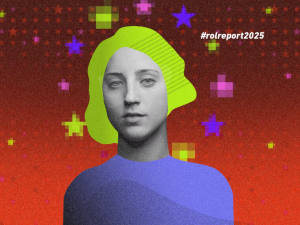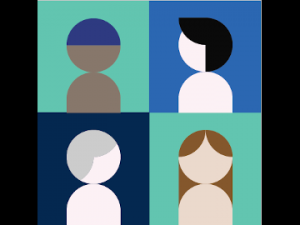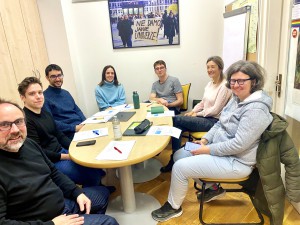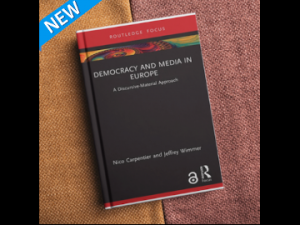Emergency pandemic powers have become ‘normalised’ in some EU countries – landmark rule of law audit finds
15. 2. 2022 | Politics
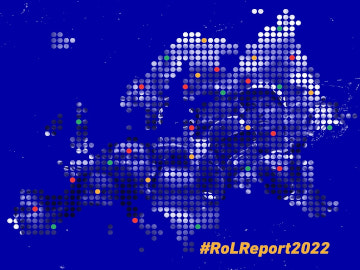
In a number of countries across the EU, rights groups are worried that pandemic emergency powers have become normalised, while increasingly authoritarian regimes have further eroded democratic standards amidst the persisting challenges brought by the pandemic, according to a comprehensive annual assessment of rule of law in Europe, published today.
Two years after the outbreak of Covid-19, government executives appear unable or unwilling to give up the restrictive pandemic powers or subject them to ordinary democratic checks and balances, according to the 486-page report by the Civil Liberties Union for Europe (Liberties), a Berlin-based civil rights organisation with 19 members across Europe. As checks on governments are in various countries already weakened by ineffective constitutional review mechanisms, limited access to judicial review, poor public consultation and the absence of independent and effective watchdog authorities, rights groups are worried that this may lead to a progressive, long-term reduction of parliamentary and civil society oversight of the executive branch.
The Liberties Rule of Law Report 2022 is the single most comprehensive assessment of the state of civil and media freedoms, justice, anti-corruption frameworks and checks on power in Europe. It compiles updates from 32 civil liberties organisations in 17 countries: Belgium, Bulgaria, Croatia, the Czech Republic, Estonia, France, Germany, Hungary, Ireland, Italy, the Netherlands, Poland, Romania, Slovakia, Slovenia, Spain and Sweden.
The report’s findings and recommendations are considered by the European Commission in its own monitoring mechanism and annual Rule of Law Report, which will see officials tour Europe in the upcoming months.
The report’s other main findings are:
- Hungary and Poland continued a slide into authoritarianism, accelerating the dismantlement of democratic standards by seizing further control of the justice system, civil society and media, while cutting basic human rights and fuelling divisions by scapegoating migrants and other minority groups. Highly polarised Slovenia suffers a climate of hostility, distrust and deep polarisation, with prominent figures responsible for defunding the media, bringing abusive lawsuits and threatening critical voices, among other problems.
- Media freedom and civil society came under further pressure in a host of countries, with journalists facing an increasingly unsafe working environment, with more verbal and physical violence than previous years, including by the police, as well as online hate speech and legal harassment.
- Overall, the report finds few signs of progress on the rule of law. Most governments allowed existing problems to stagnate. Corruption levels have generally remained the same or increased, and corruption concerns are reported in various countries in the management of the pandemic and the (mis)use of EU recovery funds. Civil society organisations and rights defenders continue to face verbal and physical attacks, legal harassment and smear campaigns, especially those that work on sensitive issues such as the rights of religious and ethnic minorities, LGBTQI+ persons, environmental protection and anti-police violence. In many countries, laws still disproportionately limit legitimate free speech. There has been a sharp decline in equality for women and LGBTQI+ persons in a number of countries, and structural discrimination and racism persist across the EU. That includes racial profiling and police brutality – and widespread violations of the rights of migrants, including violent pushbacks and ill treatment.
In positive developments, Liberties and its members observed modest improvements in the area of justice in some member states. Also, Estonia was praised for having supported civil society organisations during the pandemic by relaxing administrative rules. Reforms on justice and anti-corruption progress in Slovakia, while Italy is making genuine efforts to reduce courts’ backlog and the length of proceedings and to improve its penitentiary system. The Croatian government also got a thumbs up for taking steps to regulate and promote professional and ethical standards for online media.
Liberties executive director, Balazs Denes, said: “This report revisits the dangerously blurred lines around emergency pandemic powers and warns of the accelerating slide away from the rule of law in certain EU countries. The European Commission should step up its efforts to correct these stains on democracy, for the sake of the Union and the growing number of watchdogs and citizens being marginalised, bullied and cheated. It was right to stop taxpayer euros falling into the pockets of tinpot authoritarian regimes in Hungary and Poland, and it should go further by initiating strategic infringement proceedings and, where relevant, activate the rule of law conditionality mechanism.”
On 16 February, the European Court of Justice is expected to confirm European Commission powers to strip countries of funding due to rule of law violations. The Commission is currently holding back billions of euros in pandemic recovery funds for Hungary and Poland.
The 2022 Report will be live at this address when the embargo lifts: https://www.liberties.eu/f/q3U2FR
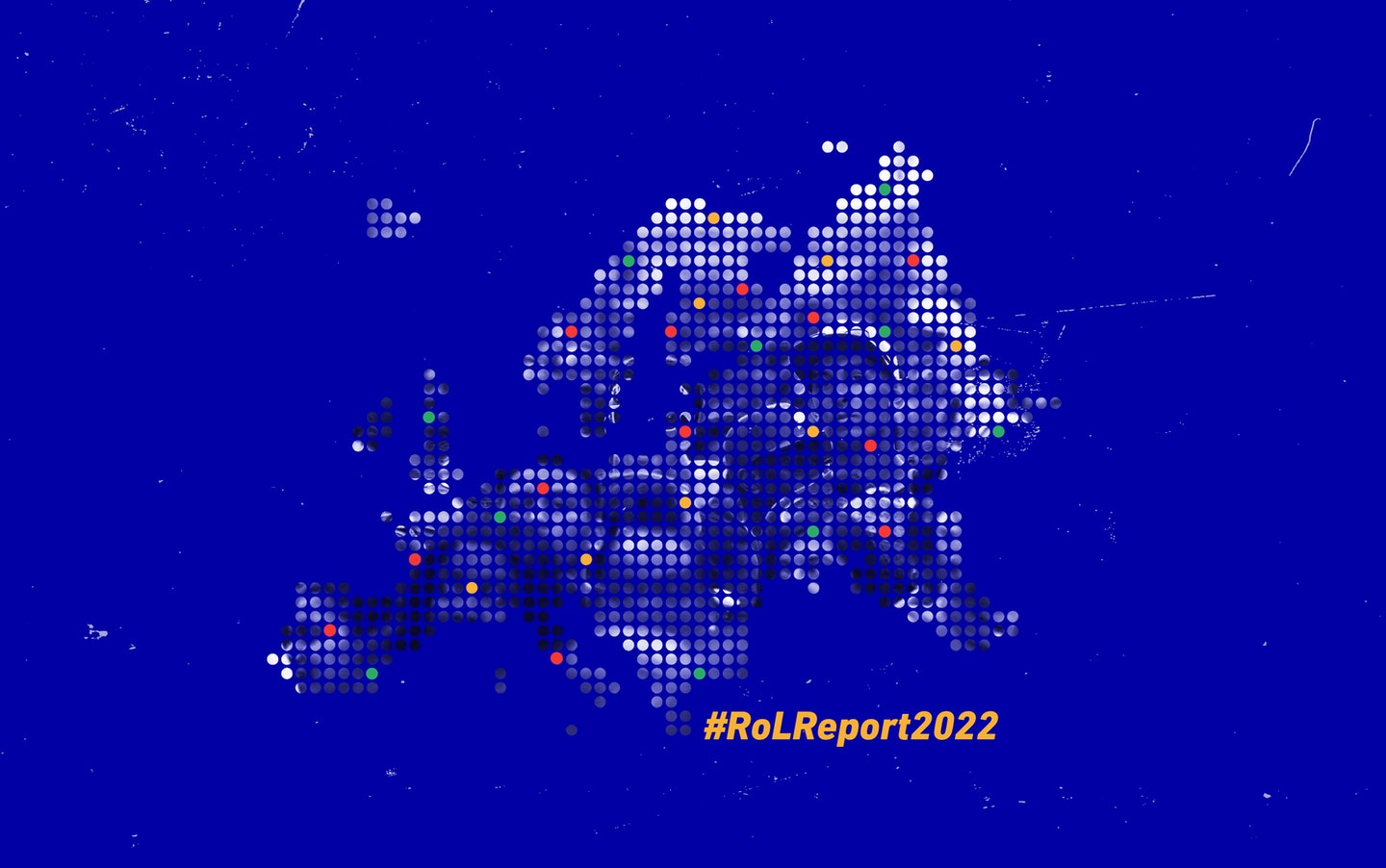
Contacts
Valentin Toth
Head of Communications
valentin.toth@liberties.eu
+4915734590280
The Civil Liberties Union for Europe (Liberties) is a Berlin-based non-governmental organisation with 19 member organisations across Europe protecting and promoting the civil liberties of everyone in the European Union (EU).
Liberties member organisations
- Associazione Antigone (Italy)
- Belgian League of Human Rights
- Helsinki Committee (Bulgaria)
- Centre for Peace Studies (Croatia)
- Civil Rights Defenders (Sweden)
- Estonian Human Rights Centre
- Human Rights Monitoring Institute (Lithuania)
- Hungarian Civil Liberties Union
- Italian Coalition for Civil Liberties and Rights
- Nederlands Juristen Comité voor de Mensenrechten
- Polish Helsinki Foundation for Human Rights
- Rights International Spain
- Gesellschaft für Freiheitsrechte (Germany)
- Helsinki Committee (Romania)
- The Irish Council for Civil Liberties
- The Peace Institute (Slovenia)
- VIA IURIS (Slovakia)
- VoxPublic (France)

